Are you often left wondering if the steak on your plate is contributing to those irksome digestive symptoms of Irritable Bowel Syndrome (IBS)? You’re not alone.
With IBS affecting around 10-15% of the global population, the quest for dietary management strategies is ever-evolving. In this article, we’re covering the surprising link between meat consumption and IBS, shedding light on how your dietary choices can significantly impact your gut health.
Understanding the connection between what you eat and how your gastrointestinal tract responds is crucial for IBS patients. We’ll explore how different types of meat, from red meats like beef and bacon to leaner options, can affect IBS symptoms. We’ll also touch upon the role of dietary components such as saturated fats, proteins, and gut bacteria in the context of IBS.
As we journey through this meaty landscape, we’ll take a closer look at the specific impact of red meat on IBS symptoms and overall health, including the risks associated with high consumption. But it’s not all bad news for meat lovers. We’ll also discuss the benefits of lean meats for IBS sufferers, offering tips on how to make your favorite cuts more IBS-friendly.
So, are you ready to unravel the complex relationship between meat and IBS? From exploring diet alternatives like plant-based options to analyzing the controversial Carnivore Diet, we’ve got you covered.
By the end of this article, you’ll have a clearer understanding of how to balance your meat intake for optimal IBS management and tips to help you savor your meals without the discomfort.
- Related: Irritable Bowel Syndrome Diet
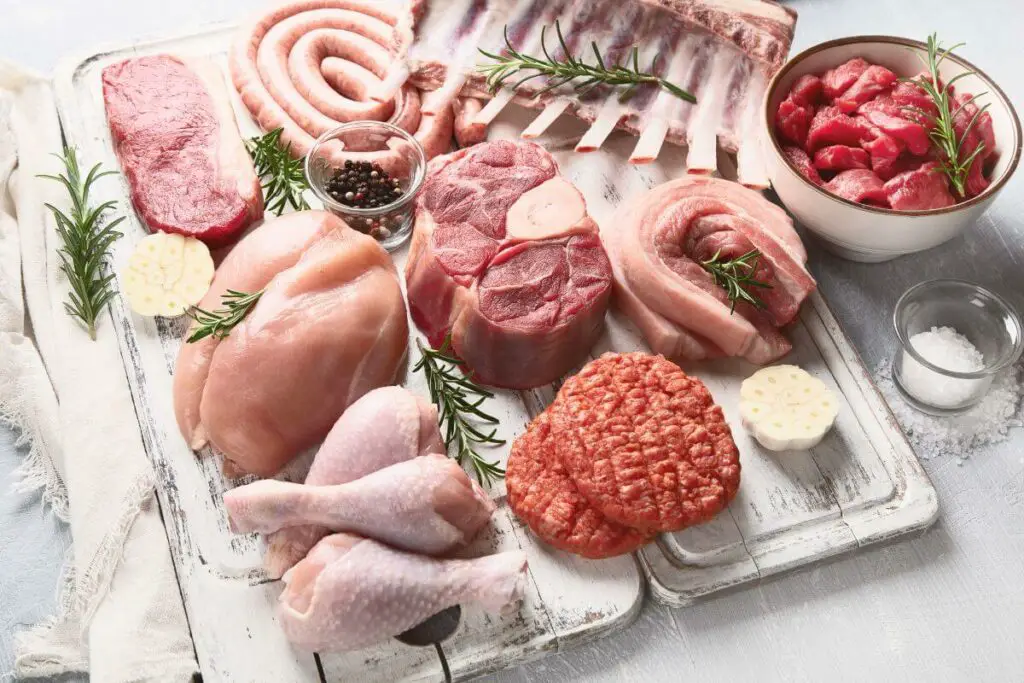
Meat and IBS Relationship – Key Takeaways
- Meat can impact IBS symptoms: Certain types of meat, particularly those high in fat, can be harder for your gut to digest, potentially leading to discomfort and exacerbating IBS symptoms.
- Red meat and IBS: Fatty cuts of red meat can increase gas, bloating, and discomfort, while also posing health risks like higher colorectal cancer and cardiovascular disease risks.
- Lean meats in a balanced IBS diet: Lean meats like chicken and fish are generally well-tolerated and provide essential nutrients. Cooking methods and portion sizes also play a role in digestive health.
- Plant-based options for IBS relief: Incorporating plant-based foods rich in soluble fiber, lean proteins, low-FODMAP fruits and vegetables, healthy fats, fermented foods, and herbal teas can help manage IBS symptoms.
- High-fiber foods without aggravating IBS: Gradually introduce high-fiber foods like zucchini, leafy greens, oats, quinoa, and chia seeds, and consider supplements like psyllium husk and probiotics for gut health.
- Risks of the carnivore diet for IBS: A meat-only diet can lead to nutrient deficiencies, disrupt gut microbiota balance, and potentially worsen IBS symptoms. Consult with a healthcare professional before making drastic dietary changes.
- Balancing meat intake with IBS: Opt for lean cuts and low-fat cooking methods, monitor portion sizes, consider plant-based protein sources, keep a food diary, and consult with a registered dietitian for personalized dietary management.
The Connection Between Meat and IBS Symptoms

You might be surprised to learn that the meat you consume could be impacting your IBS symptoms. Certain types of meat, particularly those high in fat, can be harder for your gut to digest, potentially leading to discomfort and exacerbating IBS symptoms.
Let’s take a closer look at how your meat choices could be affecting your gut health. Here’s a table comparing different types of meat and their potential impact on IBS symptoms:
| Type of Meat | Potential Impact on IBS Symptoms |
|---|---|
| Lean Chicken | Generally well-tolerated |
| Fatty Beef | May worsen symptoms in some individuals |
| Fatty Pork | Tends to exacerbate symptoms |
| Fish | Often well-tolerated |
| Processed Meats | Can be problematic |
While the impact of meat on IBS symptoms can vary from person to person, it’s essential to pay attention to how your body responds to different types of meat. If you’re experiencing discomfort, consider incorporating more lean, easily digestible proteins like chicken or fish into your diet.
Red Meat and IBS: What You Need to Know
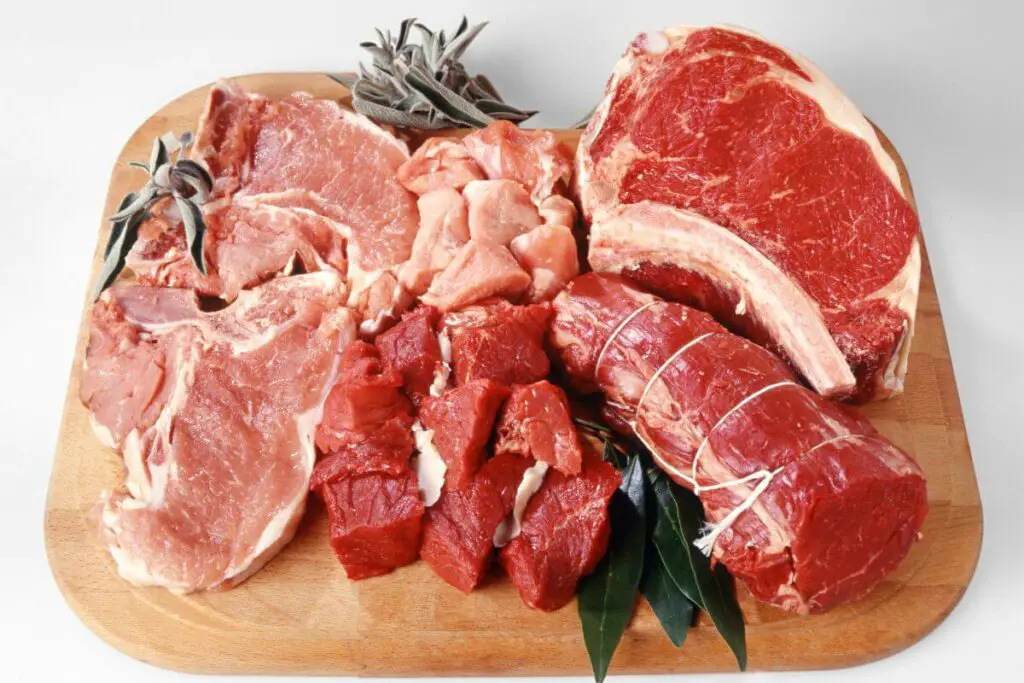
If you’re a fan of a juicy steak or a classic burger, you might want to pay attention. Red meat, while delicious, can be a double-edged sword for those with IBS. Here’s the lowdown:
- IBS Symptoms: Red meat, especially fatty cuts, can be harder for your body to digest. This can lead to increased gas, bloating, and discomfort, all common IBS symptoms. If you notice your symptoms flaring up after a meaty meal, it might be time to consider a dietary adjustment.
- Health Risks: High consumption of red meat has been linked to a higher risk of colorectal cancer. It can also contribute to cardiovascular diseases like heart attacks and strokes, mainly due to its association with hypercholesterolemia, or high cholesterol levels in the blood.
Now, don’t panic and swear off steaks forever just yet. The key is moderation. You don’t have to eliminate red meat from your diet entirely, but it’s important to balance it with other sources of protein and nutrients.
Here are some actionable tips if you have IBS and want some meat products:
- Opt for leaner cuts of red meat, like sirloin or tenderloin, and trim off visible fat before cooking.
- Limit your red meat intake to no more than 3-4 times a week.
- On meat-free days, try incorporating plant-based proteins like beans, lentils, or tofu into your meals.
I’ve seen many patients find relief from their IBS symptoms by making smart adjustments to their red meat consumption. It’s all about finding what works best for your body. And remember, a balanced diet is the key to a healthy gut and overall well-being.
The Role of Lean Meats in a Balanced IBS Diet
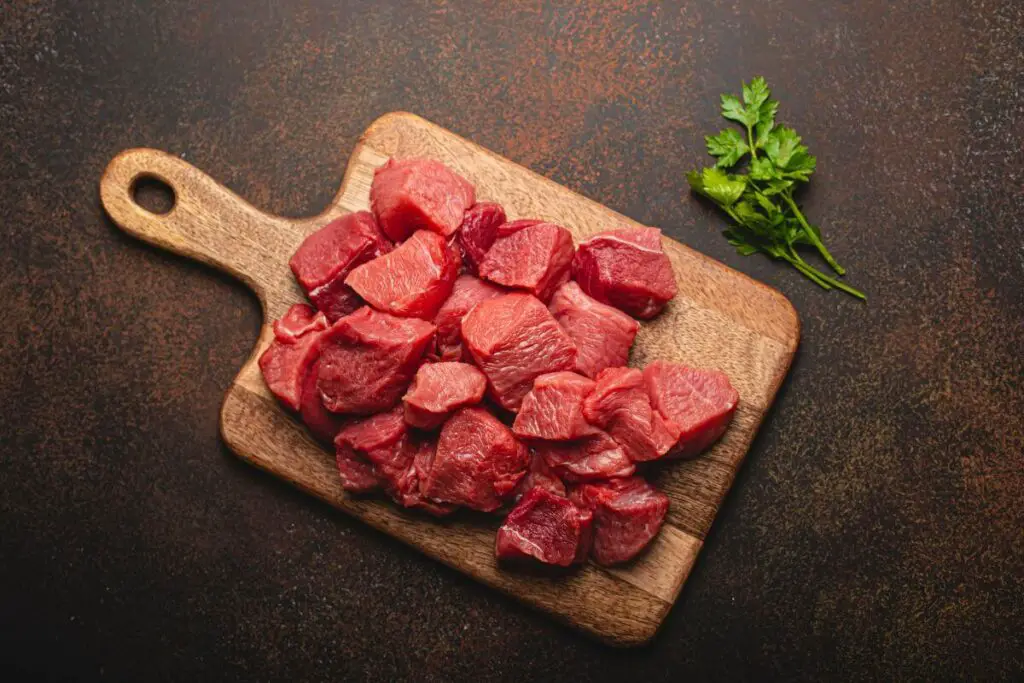
Lean meats are a valuable protein source for those with IBS. They’re not only gentle on the digestive system but also provide essential nutrients like vitamin B12, which is important for nerve function and energy production.
Incorporating lean meats into your diet can help you maintain a balanced and nutritious eating plan.
Here are a few tips to make your lean meat IBS-friendly:
- Opt for lean cuts: Choose meats that are low in fat, such as skinless poultry, pork tenderloin, and lean cuts of beef.
- Marinate before cooking: Marinating meats can help tenderize them and make them easier to digest. Use simple, IBS-friendly marinades with herbs, spices, and low-acid ingredients like olive oil and lemon juice.
- Grilling or broiling: Cooking methods like grilling or broiling can help reduce the fat content and make the meat easier to digest.
Remember, everyone’s tolerance to different foods can vary, so it’s important to listen to your body and make adjustments as needed.
If you find that certain types of lean meats trigger your symptoms, you may want to try different cooking methods or consult with a dietitian to find alternatives that work for you.
Exploring Diet Alternatives: Plant-based Options for IBS Relief
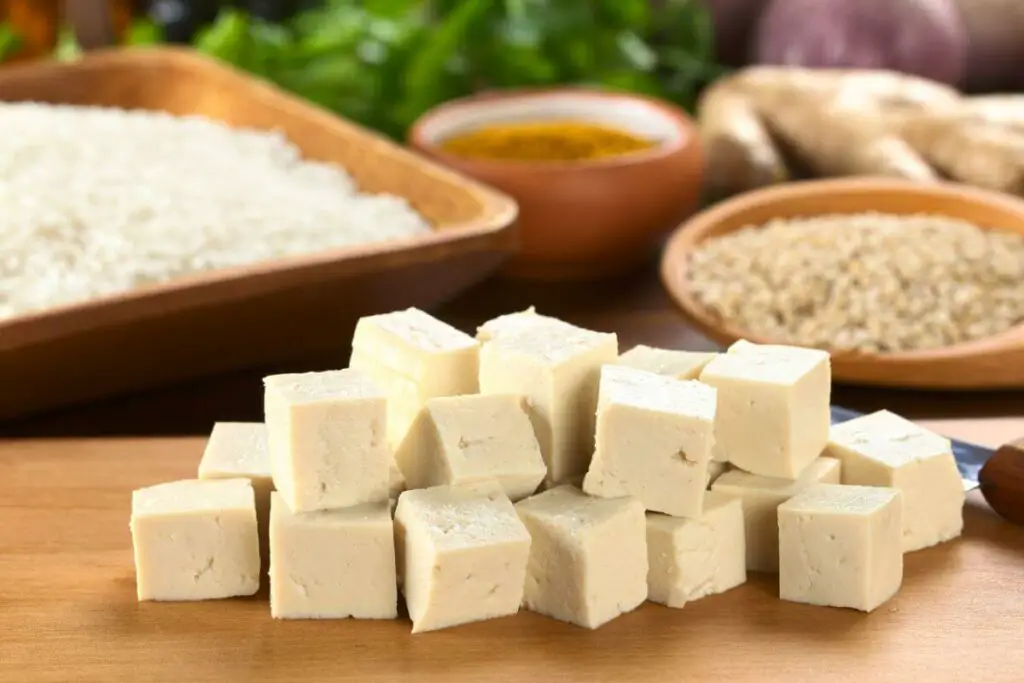
Plant-based diets have been gaining popularity as a potential solution for managing IBS symptoms. By focusing on whole, plant-based foods, you may find relief from the abdominal pain and discomfort associated with IBS.
Let’s explore some dietary alternatives that can help you manage your IBS symptoms while still enjoying delicious and satisfying meals.
Plant-Based Options for IBS Relief
If you’re considering a plant-based diet to manage your IBS, it’s important to choose foods that are gentle on your digestive system. Here are some plant-based options that can help alleviate IBS symptoms:
- Soluble Fiber-Rich Foods
- Foods high in soluble fiber, such as oats, flaxseeds, and chia seeds, can help regulate bowel movements and reduce diarrhea in IBS.
- Actionable Tip: Start your day with a fiber-rich breakfast like oatmeal topped with flaxseeds and berries.
- Lean Proteins from Plants
- Plant-based protein sources like tofu, tempeh, and legumes can be easier to digest than some animal proteins.
- Actionable Tip: Experiment with meat alternatives such as lentils, chickpeas, and black beans in your favorite recipes.
- Low-FODMAP Fruits and Vegetables
- While many fruits and vegetables can trigger IBS symptoms, there are low-FODMAP options like bananas, blueberries, carrots, and spinach that are less likely to cause issues.
- Actionable Tip: Incorporate low-FODMAP fruits and vegetables into your meals to add variety and nutrients.
- Healthy Fats
- Sources of healthy fats, such as avocados, nuts, and seeds, can provide essential nutrients without exacerbating IBS symptoms.
- Actionable Tip: Enjoy a handful of nuts or seeds as a snack, or add avocado to your salads for a creamy texture.
- Fermented Foods
- Probiotic-rich foods like kimchi, sauerkraut, and non-dairy yogurt can support gut health and may help alleviate some IBS symptoms.
- Actionable Tip: Include small servings of fermented foods in your diet to introduce beneficial bacteria to your gut.
- Herbal Teas
- Certain herbal teas, such as peppermint and ginger, have been shown to ease digestive discomfort and reduce IBS symptoms.
- Actionable Tip: Sip on a cup of peppermint or ginger tea after meals to aid digestion and soothe your stomach.
When transitioning to a plant-based diet for IBS, it’s essential to listen to your body and make adjustments based on your individual response to trigger foods.
While these dietary changes can be beneficial for many people with IBS, it’s always best to consult with a healthcare professional or a registered dietitian to ensure that you’re meeting your nutritional needs.
Incorporating High-Fiber Foods Without Aggravating IBS

You might think that increasing dietary fiber with IBS is like walking a tightrope, but it’s not as tricky as it seems. Here are some high-fiber foods that are generally well-tolerated by IBS sufferers:
- Zucchini: A versatile, low-FODMAP vegetable that can be spiralized, grilled, or sautéed.
- Leafy Greens: Spinach, kale, and Swiss chard are rich in fiber and nutrients.
- Oats: A bowl of oatmeal or overnight oats can be a comforting and fiber-rich breakfast.
- Quinoa: A complete protein that’s also high in fiber.
- Chia Seeds: These tiny seeds pack a fiber punch and can be added to smoothies, yogurt, or oatmeal.
Now, let’s talk strategy. The key is to introduce these high-fiber foods gradually to avoid gastrointestinal distress. Start with small portions and gradually increase over a few weeks. This gives your gut microbiota time to adjust to the increased fiber load.
If you’re following a low-FODMAP diet, which is often recommended for IBS, you can still enjoy high-fiber foods by choosing those that are low in fermentable carbohydrates.
To further support your gut health, consider adding a dietary supplement like psyllium husk, which has been shown to improve IBS symptoms. Probiotics are another option, especially for those with a history of Clostridioides difficile infection.
Your gut is as unique as you are, so it’s important to pay attention to how your body responds to different high-fiber or low-FODMAP foods. What works for one person may not work for another. And remember, staying hydrated is crucial when increasing your fiber intake.
So, don’t be afraid to load up on those leafy greens or experiment with new high-fiber recipes. With a bit of trial and error, you can find the right balance of fiber that keeps your gut happy and your IBS symptoms in check.
The Carnivore Diet and IBS: Analyzing the Controversy
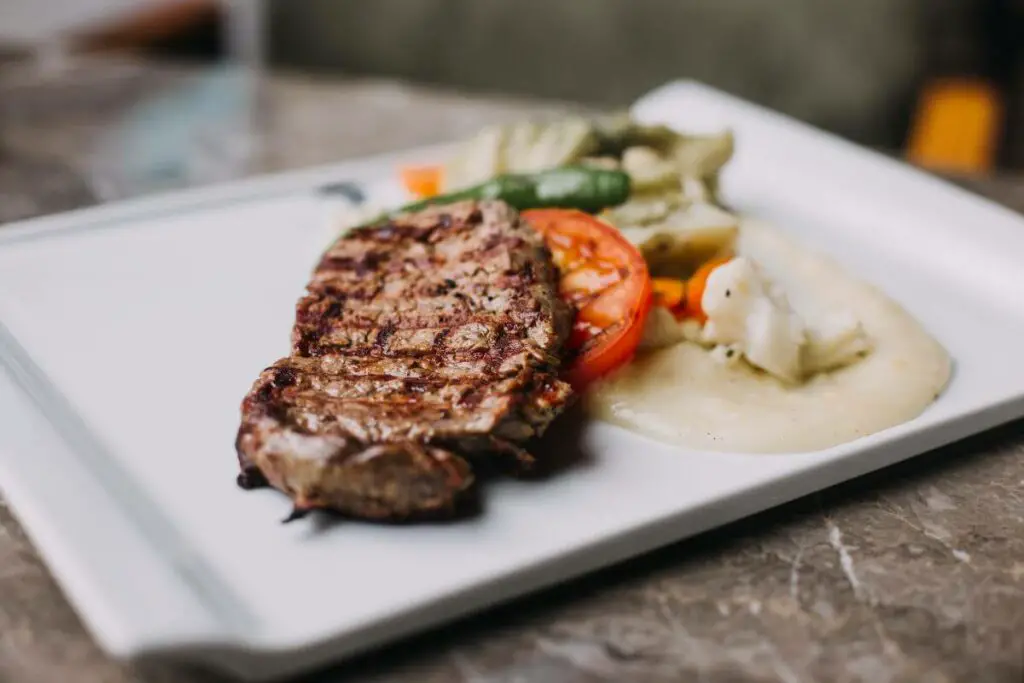
Let’s talk about one of the most polarizing diets out there – the carnivore diet. This meat-centric eating plan has gained traction, but is it really a friend or foe when it comes to IBS? Let’s unpack the science and see how it aligns with the needs of your gut.
Risks and Considerations for IBS Patients Considering a Carnivore Diet
Before you fully commit to a carnivore diet, let’s talk about the potential risks, especially if you have IBS. While a meat-only diet may seem like a simple solution, it can come with its own set of challenges for your gut health.
Here’s what you need to consider:
- Nutrient Deficiencies: A carnivore diet is typically low in fiber, which is essential for gut health. This can lead to constipation and potential exacerbation of IBS symptoms. You may also miss out on key nutrients like vitamin B12, iron, and zinc, which are primarily found in plant-based foods.
- Gut Microbiota Imbalance: Your gut is home to trillions of bacteria that play a crucial role in your overall health, including managing IBS symptoms. A diet devoid of plant-based foods can disrupt this delicate balance, potentially worsening your IBS symptoms.
- Vitamin B12 Deficiency: This essential vitamin, primarily found in animal products, is vital for nerve function and the production of DNA and red blood cells. If you’re not careful, a meat-only diet can still lead to B12 deficiency.
- Iron Deficiency: While meat is a good source of heme iron, which is easily absorbed by the body, a diet that excludes plant-based sources of iron can still lead to deficiencies, especially in menstruating women.
- Zinc: This essential mineral for immune function and wound healing is primarily found in animal products. However, it’s important to ensure you’re consuming a variety of meats to avoid zinc deficiencies.

Before making any drastic changes to your diet, it’s crucial to consult with a healthcare professional, especially if you have IBS. They can help you navigate a diet that supports your gut health while ensuring you’re getting all the nutritious food your body needs.
Remember, the goal is to find a sustainable approach that manages your IBS symptoms without compromising your overall health.
Final Thoughts: Balancing Meat Intake for Optimal IBS Management
As you’ve journeyed through the intricate relationship between meat and IBS, you’ve discovered that not all meats are created equal when it comes to gut health.
While high-fat foods like fatty cuts of red meat and processed meats can exacerbate IBS symptoms, lean meats like chicken and fish offer a gentler option that’s rich in essential nutrients.
By choosing your meats wisely, considering portion sizes, and experimenting with different cooking methods, you can savor your meals without discomfort.
Whether you’re a meat lover or considering a more plant-based approach, the key is to listen to your body, keep a food diary, and consult with a registered dietitian for personalized dietary management that supports both your gut health and overall well-being. So, as you continue navigating life with IBS, remember that the power to soothe your gut and savor your meals lies in the choices you make at the dinner table.

Read more about IBS-related diets and food choices:

